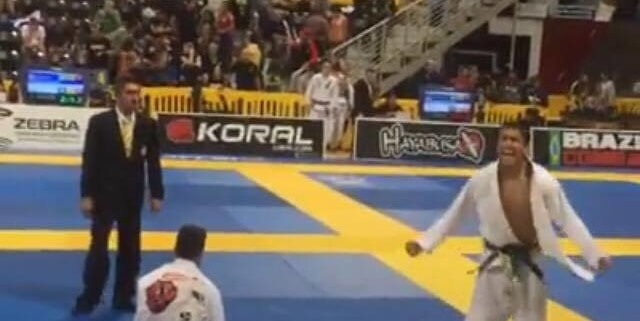Intensity in your BJJ training
Intensity in your BJJ training
Intensity in your BJJ training will rise as you rise. The first thing you’ll notice when you compare a competition match or a very hard sparring match where neither of you wants to lose versus a relaxed gym match where you’re focused more on technical growth rather than winning is intensity. That the intensity immediately rises several levels above normal. This will have several immediate effects. The first is that breathing will become shallow and restricted and quickly fall behind the demand for oxygen that the extra muscular effort demands. The second is that you will tend to keep muscular tension longer and at higher levels and experience greater lactic acid build up than usual. In some cases, you may even experience adrenaline build up and release that can create an initial sensation of impaired muscle control when adrenaline levels are high and then a sudden strength loss when your adrenaline diminishes. Mentally, you will often experience a tunnel vision as you focus on an initial move or game plan and your heightened focus on that prevents you seeing any alternatives that arise as the match progresses. You will also find that as anxiety increases, so does your aversion to risk. You’ll restrict yourself only to your most trusted moves and shy away from trying anything else, thus shrinking your skill set well below what you normally exhibit in a more relaxed setting. Now if all this sounds bad, you’re right, it is, but it gets worse. As you start to experience these effects, you naturally get even more anxious as you feel your physical and mental attributes diminish and this will further increase anxiety, creating a downward spiral of anxiety and effects that compound each other until you find yourself exhausted just a few minutes into the match. Which is shocking because in regular training you may be capable of sparring for thirty minutes straight without a problem. This can be a shocking experience the first time you feel it come on. Be aware that it generally gets better with time. If you can survive the initial shock you’ll often be able to recover in the course of the match and exhibit a “second wind.†Make sure you get to feel the sensation from time to time so that the shock value diminishes.



